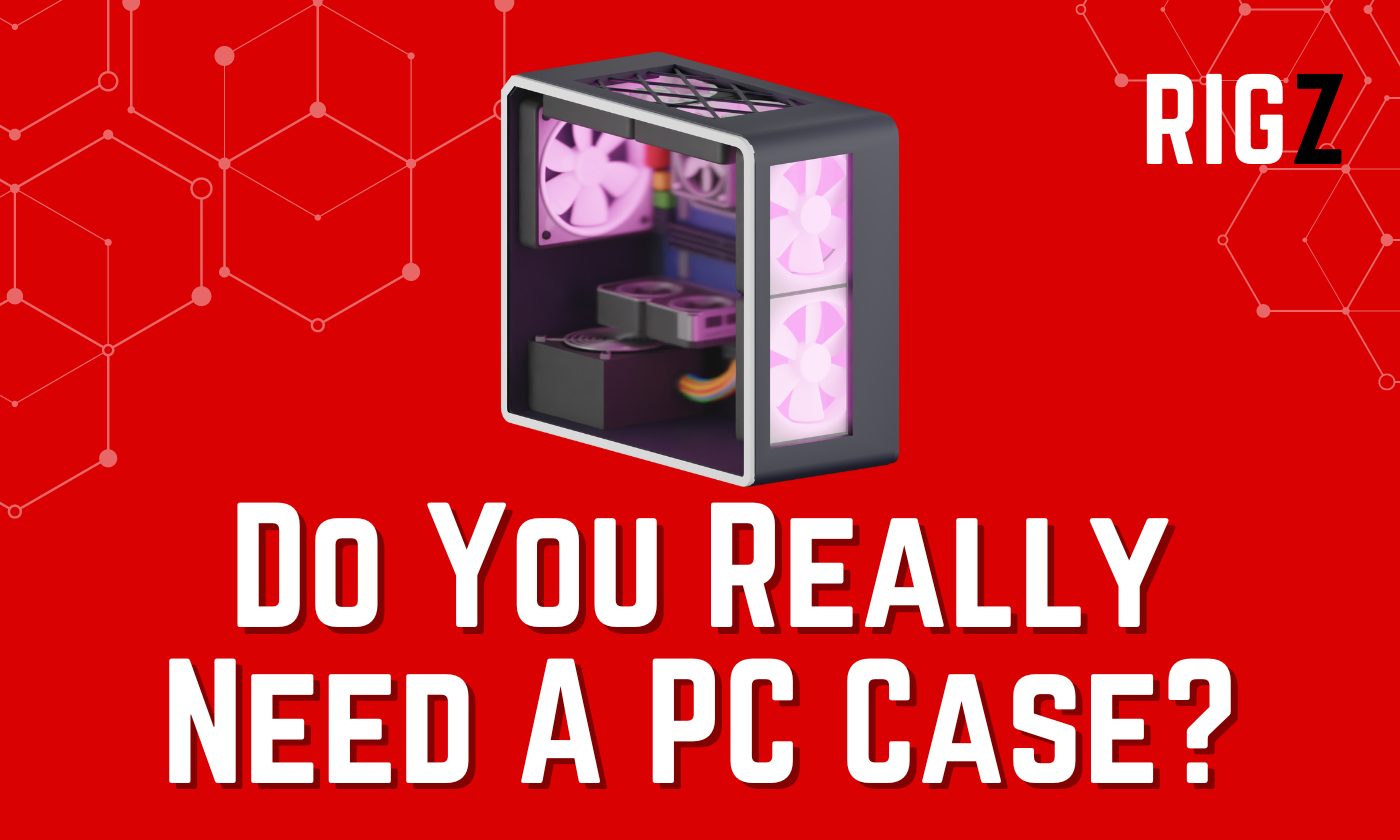Building your own PC is a labor of love, a delicate blend of choosing the right components and a touch of technical know-how. But there’s one component you might be pondering over – the PC case. Is it just a pretty box or does it serve a deeper purpose?
And is a PC case necessary at all? Let’s find out.
Is a PC Case Necessary?
Yes, a PC case is necessary. It not only provides physical protection to your precious components from dust, spills, and bumps, but it also offers optimal airflow, which keeps the system cool. While some daring souls might run a PC without a case (a practice called ‘breadboarding’), it’s not recommended for everyday use.
The Benefits of a PC Case
Protection from the Elements
Dust, pet hair, and accidental liquid spills are a PC’s worst enemies. A case acts as a barrier against these potential hazards. Plus, it ensures that people won’t accidentally touch (and possibly damage) the internal parts.
A Cooler PC is a Happier PC
Without a case, it’s hard to manage airflow across components. Good cases are designed to keep air moving in specific paths to carry away heat. This means your CPU, GPU, and other parts stay cooler, leading to better performance and a longer lifespan for your components.
Less Noise, More Peace
PC components can be noisy. Cases often come with sound dampening materials or design features that help reduce the noise produced by spinning fans or hard drives.
The Potential Drawbacks
Can Be Pricey
Good cases can sometimes be a bit on the expensive side. But remember, a solid case can last through multiple PC builds.
Space and Weight
If you’re tight on space or need a portable setup, a bulky PC case might not be ideal. There are compact cases available, but they can sometimes come with their own set of challenges.
FAQ
What happens if I don’t use a PC case?
You expose your components to potential damage, reduced airflow, and increased dust accumulation. It’s also easier to accidentally short something with static electricity.
Can I use my PC without a case temporarily?
Sure, for testing purposes, it’s common to run a PC without a case. Just be cautious and keep it away from hazards.
Are all PC cases the same size?
Nope, there are various sizes like ATX, microATX, and mini-ITX, each fitting different motherboard sizes and offering different features.
Can a PC case affect performance?
Indirectly, yes. A good case can improve airflow, which keeps components cooler. Cooler components can perform better and last longer.
Do I need a PC case with a clear side panel?
That’s a style choice! A clear panel lets you show off your components, but it doesn’t necessarily affect the PC’s performance.
Conclusion
So, is a PC case necessary? Absolutely. A PC case is the unsung hero of your setup, offering protection, efficient cooling, and noise reduction. While you can technically operate a PC without one, the risks outweigh the benefits. For the longevity and optimal performance of your computer, investing in a good PC case is a no-brainer. Keep your tech treasures safe and sound, and they’ll thank you with seamless performance for years to come.
